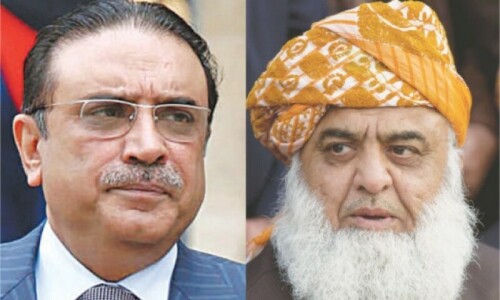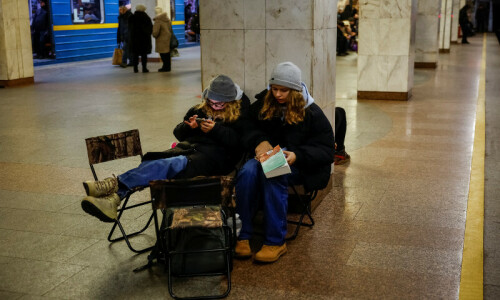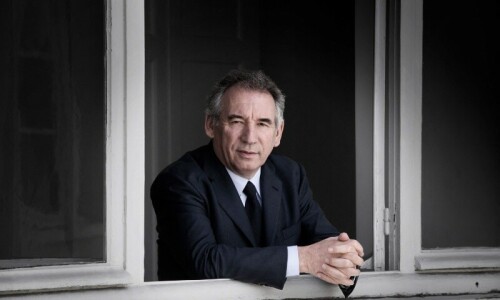ISLAMABAD: Federal Minister for State and Frontier Regions General (r) Abdul Qadir Baloch denied that civilians were killed in last week's air strikes conducted in Shawal valley in North Waziristan.
"There is a very small civil population in Shawal valley which is yet to be evacuated, but I assure you there were no reports of civilian casualties", Baloch told a news conference in Islamabad.
He also said that Mullah Fazaullah-led militants hiding in Afghanistan were planning attacks on the Bajaur tribal region. He added that Pakistan Army would foil their plans of capturing Bajaur agency.
General (r) Baloch further said targeted operations against militants' hubs in Islamabad, Lahore and Karachi would also be carried out by Police, Rangers and FC. He added that the military could also participate if needed.
Baloch claimed the ongoing operation in North Waziristan was "bigger than the war of 1971" and victory was the only option against terrorists.
He however admitted that the government had failed to mobilise the nation over the IDPs issue but said they would be rehabilitated through local resources. He said the total number of IDPs from North Waziristan could reach two million.
Pakistan's military launched a large-scale operation named 'Zarb-i-Azb' against Taliban militants in North Waziristan tribal region after a brazen attack on Karachi International Airport, which was claimed by the Tehreek-i-Taliban Pakistan (TTP), and failure of peace talks between government and TTP nominated negotiators.
North Waziristan lies in the northwestern parts of Pakistan and is one of the country's seven semi-autonomous tribal regions which has been considered to be a major hub of militants.
Different account of air strikes
AFP - When Pakistani air force jets rained down missiles on a village in the country's violence-wracked northwest last week, the military's information wing chose to describe the July 16 incident as "Today early morning 35 fleeing terrorists were killed through aerial strikes in Shawal Valley.”
But the official toll has been impossible to verify as the access of media is restricted in the region, raising questions among rights activists over the offensive's true human cost.
Now a new account has emerged of the killing of dozens of women and children in the air strikes, sparking anger over rising civilian casualties and fears that a new generation of radicals is being created.
According to multiple accounts by residents, 37 civilians were killed in Wednesday's attack, including 20 women and 10 children.
While villagers grieve, the incident has become a focus of rising anger among tribesmen who have managed to flee to border towns inside Pakistan, and who on Monday threatened to march on Islamabad if the operation does not end soon.
The bombardment in the Shawal Valley began just before 1:00 am, lighting up the sky as residents of Zoi Saidgai village sat down to eat their pre-dawn Ramadan meal (Sehri).
“It continued for hours, targeting 11 houses,” Malik Mirzal Khan, an elder who lost his daughter and brother in the strikes, told AFP from a payphone in his village.
“A single bomb dropped from the plane blew up two mud houses and the explosions could be heard 30 kilometres away,” Khan, part of a high-level peace council that attempted to avert the government offensive before it began, said.
He added that residents had made a list of the dead, and none of them were militants.
“My 13-year-old daughter, brother, his wife and two of his kids were killed,” he said.
The rest, Khan added, “were not local or foreign militants, but innocent civilians who were killed. There were men, women, boys and girls. Those seven men who died were never involved in militancy. “Noor Wali Khan, a 27-year-old truck driver, said he lost his mother and two-sisters-in-law when his house was bombed, while his brother and father are seriously wounded.
Both men's accounts were backed up by three other witnesses and relatives AFP spoke to, but the military has so far refused to comment on the matter on the record.
Human shields?
A senior security official speaking on condition of anonymity has said those who were killed had plenty of warning to evacuate.
“If a terrorist is living with his family and does not abandon them even during the time of operation and we have solid ground intelligence about the terrorist and we target his hideout, what would you call it, collateral damage or what?” the source asked.
“If a terrorist is using his family as human shields what do you expect the military to do? “Khan, the elder, said his village was never informed it would be a target.
“In the meetings with military and civil officials, we had been assured to stay home as our areas were declared safe and free from militant control,” he said, adding that he had conveyed the same message to the local population and had forbidden them from leaving their own houses.
And he said he was furious with the government.
'Truth will come out'
According to the residents, no rescue officials were able to reach the remote area and locals dug out corpses using tools and tractors.
Anti-government sentiment is running high in the village, fuelling fears among observers that the military action could backfire by creating new recruits for the militants.
Wali Muhammad, a 28-year-old shopkeeper, said that the nature of Wednesday's strikes meant the facts would eventually be known, despite the army's claims.
“You can't cover up the sun with a finger,” he said, using a Pashto expression that roughly translates to: “The truth will come out”.
Some 500 villagers turned out for funeral prayers to mourn the dead. “There were tears in the eyes of every person who participated,” Muhammad said.
“We want the military operation to be completed as soon as possible because civilians are suffering the most,” Malik Nasrullah, the chief elder of the North Waziristan tribes, told reporters.
Malik Mirzal Khan, the elder from Shawal, demanded an investigation into the air strike, a request that is unlikely to be met.
“We want to make sure such action should not be repeated for other people who are still living in Waziristan,” he said.












































